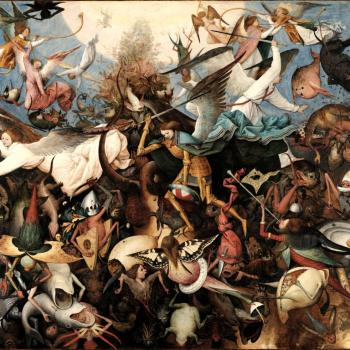What happened in the 1960s is that finally their declines became so extended, and so rapid, that for the first time there were fewer at the end of the year than at the start of the year. That's what prompted a book like Kelly's in the 1970s, because for ten years or more the old mainline had noticed that they were losing membership in an absolute and not just a proportional sense.
If the timeline for the decline is shifted, how does that affect our understanding of the reasons that brought about the decline in the first place?
Once you realize that the decline didn't start in the 1960s, you end up having to go back well into the 19th century in search of the reasons, and you find two. The first is modernist theology. The theology that prevailed in the mainline churches changed dramatically. If you take Paul Tillich's view of God, in which God is essentially something imaginary, then why do you bother to hold a church service in the first place? If there's nothing there to pray to, why do it? The liberal clergy lost their faith, but they continued to hold church.
The second factor was, when the clergy in the mainline denominations decided that they could no longer save souls -- because there were no souls to save -- they decided that they should save the world instead. They switched from religion to politics, and that was a politics of Left-wing radicalism.
It's fine, of course, to be a Left-wing radical. But it was far out of step with the people in the pews. The people in the pews still believed in God, and the people in the pews did not believe that they needed a socialist government next week. Consequently, they stopped sitting in those pews and started going to other pews.
Was it really so dramatic as that?
Nobody realizes the extent of the radicalism in that period. Somehow Reinhold Niebuhr is considered a reaffirmation of traditional Protestantism, but he was a complete Tillichian theologically, except that he believed in sin. All of the other liberals believed you could overcome sin, that human beings were perfectible. Niebuhr wouldn't buy that, but that's the only difference he had from them theologically.
The other thing that people seem to have forgotten about Niebuhr is that he ran for Congress on the socialist party ticket in 1932. He was a very radical guy. Granted, after World War II, he wasn't one of these fellow travelers who couldn't see that Russian communism was perverse. He took his stand against that, and we should be thankful, because many people in the National Council of Churches did nothing of the sort. So you can't forget that Niebuhr basically was a Tillichian theologically, and he remained a man of the Left. He was one of the founders of Americans for Democratic Action.
Jeffrey Hadden published a book in 1968 called The Gathering Storm in the Churches. He understood what was happening. He said that a big gap has opened up between the pulpit and the pews. It has two dimensions. One is religious -- the people in the pulpit are no longer really men of God. And the other is political -- the people behind the pulpit are very much men of the Left, and most of the people in the pews are not.
The upshot of this, he anticipated, was going to be the continuing decline of the so-called mainline denominations. And what he said was true. The decline has continued. I believe the Episcopalians lost another 3 percent last year. These have become small, not very important denominations.
So it's not as though you see these trends halting or reversing? Some scholars who belong to mainline congregations have pointed to signs of vitality and particular mainline churches that are thriving.
Yes, let's talk about that. There are congregations within these denominations that are growing very impressively, very quickly, very strongly. Guess what? They have evangelical clergy.
Ten years ago I did a little study that I'm repeating now. There are various evangelical associations, like the Willow Creek Association. People all over the country belong to these associations. They're non-denominational ministerial associations of evangelical orientation. If you look at their membership lists, you will find that there are Congregationalists and Episcopalians and Methodists and so on. So I took out the names of the so-called "mainline" clergy who belonged to these ministerial associations; these were ministers who belonged to "mainline" denominations but had studied at evangelical seminaries and were generally evangelical in their convictions. When I traced them back to their congregations, guess what? In these rapidly declining denominations, the rapidly growing congregations belong to these guys.





